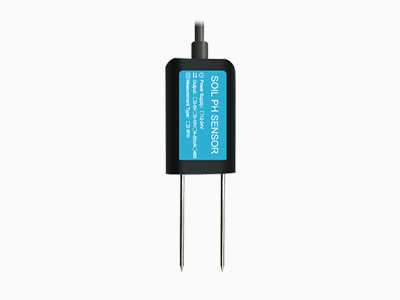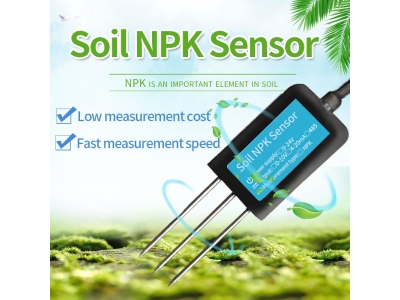Precision agriculture has revolutionized the way we approach farming by utilizing advanced technologies to optimize crop production. One such technology that has gained significant attention is soil sensor technology. Soil sensors provide real-time data on soil conditions, allowing farmers to make informed decisions regarding irrigation, fertilization, and overall crop management. In this article, we will explore the benefits of soil sensor technology in precision agriculture and its potential to transform the future of farming.

Improved Resource Management:
One of the key advantages of soil sensor technology is its ability to enhance resource management. By accurately measuring soil moisture levels, farmers can optimize irrigation practices and avoid both overwatering and underwatering. This not only conserves water but also reduces energy consumption associated with irrigation systems. Additionally, soil sensors can assess nutrient levels in the soil, enabling precise fertilizer application. This targeted approach minimizes waste and reduces environmental impact while ensuring optimal nutrient availability for crops.
Enhanced Crop Yield and Quality:
By providing real-time data on soil conditions, soil sensors enable farmers to monitor crop health more effectively. They can detect early signs of stress, such as inadequate moisture or nutrient deficiencies, allowing prompt intervention before significant damage occurs. With timely adjustments to irrigation and fertilization, farmers can ensure that crops receive the necessary resources for optimal growth. As a result, crop yield and quality are improved, leading to increased profitability for farmers and higher-quality produce for consumers.
Cost Savings:
Soil sensor technology offers cost-saving opportunities for farmers. By precisely measuring soil moisture levels, farmers can avoid unnecessary irrigation, reducing water usage and associated costs. Moreover, by monitoring nutrient levels, farmers can optimize fertilizer application, minimizing excessive use and lowering expenses. Additionally, the early detection of crop stress through soil sensors allows for targeted interventions, reducing the risk of crop loss and the need for expensive remedial measures. Overall, soil sensor technology helps farmers optimize their resource allocation, leading to significant cost savings.
Environmental Sustainability:
In an era of increasing environmental concerns, soil sensor technology plays a crucial role in promoting sustainable farming practices. By optimizing irrigation and fertilization, farmers can minimize the use of water and chemicals, reducing the potential for water pollution and soil degradation. Precise nutrient management also prevents nutrient runoff, which can have detrimental effects on nearby water bodies. Furthermore, by improving crop health and yield, soil sensors contribute to food security and help mitigate the environmental impact of expanding agricultural activities.
Data-Driven Decision Making:
Soil sensor technology provides farmers with valuable data that can inform decision-making processes. By collecting and analyzing data on soil moisture, temperature, and nutrient levels, farmers can gain insights into the specific needs of their crops. This data-driven approach allows for proactive decision making, enabling farmers to respond promptly to changing conditions and optimize crop management strategies. Over time, the accumulation of data can also facilitate predictive analytics, empowering farmers with even more accurate and efficient farming practices.

Conclusion:
Soil sensor technology is revolutionizing precision agriculture by providing real-time data on soil conditions. The benefits of this technology are numerous and far-reaching, including improved resource management, enhanced crop yield and quality, cost savings, environmental sustainability, and data-driven decision making. As the world’s population continues to grow, the demand for food production will increase, making it imperative to adopt innovative technologies like soil sensors to maximize agricultural efficiency. With further advancements and wider adoption, soil sensor technology has the potential to transform the future of farming, ensuring sustainable and productive agriculture for generations to come.
